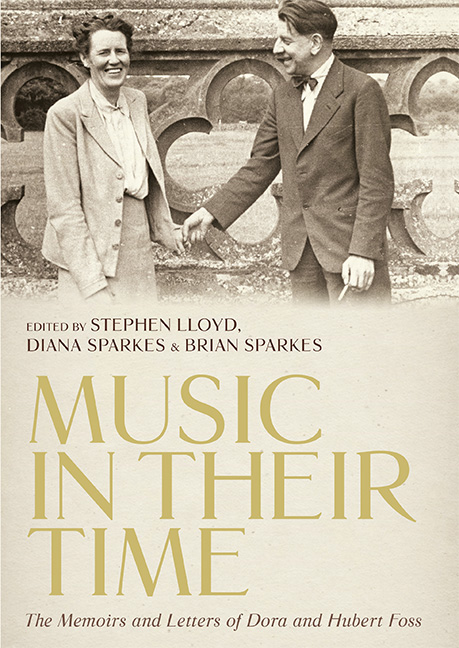Introduction
Published online by Cambridge University Press: 25 March 2020
Summary
IN 1933 THE PUBLISHER RICH & COWAN LTD, of Maiden Lane in Covent Garden, London (their list was primarily of literary books) launched a series of monographs exploring varied aspects of the contemporary scene: art, the theatre, and the press, for example, were covered, the books unified by an ‘In My Time’ series title, at once proclaiming that they were both personal and up to date. The novelist Compton Mackenzie contributed Literature in My Time, and The Theatre volume was written by the Belfast-born dramatist and critic St John Greer Irvine. The little series opened windows on carefully chosen themes considered important to the enquiring mind at the time, and as it developed came to reflect the preoccupations, perhaps the anxieties, of the decade: The Navy in My Time (1933) was delivered by Admiral Mark Kerr, London in My Time (1934) by the prolific chronicler and imaginer of that city, Thomas Burke, and Marriage in My Time (1935) by Marie Stopes. The topic of music, not unnaturally, found an early place in the list: Music in My Time was published in October 1933, and its author was Hubert James Foss.
Foss, in 1933, was at the apex (one might say) of his work as a music publisher. Ten years earlier he had been appointed as the founding editor and manager of a brand-new music publishing department at Oxford University Press. The Press's scholarly books (under the Clarendon Press imprint) were then published at Oxford, but the publisher's trade, educational, and children's books were managed from London, as were its increasingly important overseas operations. The Publisher to the University, Humphrey Milford, was in charge at London, presiding from the elegant (now demolished) Amen House in Warwick Square. At the suggestion of the writer Percy Scholes it was Milford who had personally commissioned Foss, already working at OUP as a sales representative, to ‘dip a toe’ into issuing sheet music (conditional upon a haircut and a general tidying-up of his bohemian image, of which Milford did not approve). Milford, always one to grasp an unusual opportunity (OUP remains today the only major university press with a music publishing operation), expected, perhaps, a desultory trickle of choral music and piano music, and a continuation of the existing hymn book portfolio (the Press had published The English Hymnal in 1906).
- Type
- Chapter
- Information
- Publisher: Boydell & BrewerPrint publication year: 2019



